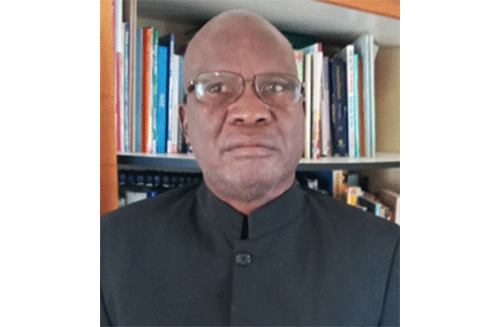During his inaugural address on 4 March 1933, Franklin Roosevelt, the thirty-second president of the United States of America, told his fellow Americans that the only thing they had to fear was fear itself. In fact, he was assuring his nation that there was nothing to be scared of after the Economic Depression of 1933, and was demonstrating his leadership quality in times of crisis.
Namibia is not facing any crisis, except that it lost a leader who was liberation icon. Hence, people might panic because of the loss.
In this situation, it is perhaps good to look at what fear is all about. According to psychological research, fear alerts us to the presence of danger or the threat of harm, whether that danger is physical or psychological. Sometimes fear stems from real threats, but it can also originate from imagined dangers. While fear is a natural response to some situations,it can also lead to distress and disruption when extreme or out of proportion to the actual threat.
There were mixed reactions when the media reported that the late Namibian president was being flown to the United States for medical attention. Some politicians and other political analysts even went to the extent of calling for the exiting of the head of state, as it was felt he could no longer be able to carry out his presidential duties.
Whether they voiced that out of honesty or sheer fear of what could happen should the head of state succumb to his health while in office, is perhaps difficult to tell. Whatever fears were there, they have been mitigated by the appointment of Hon. Nangolo Mbumba as the fourth president of the Repulic of Namibia. This is in fact the international standard and constitutional norm to follow immediately after the demise of a sitting head of state.
The United States did that on 22 November 1963 within some hours after the assassination of Kennedy, the thirty-fifth president of the United States.
Many countries have since followed these trends, including Zambia, twice after the deaths of two sitting presidents who demised in State House and in office. But there was an exception to the rule when Lansana Conte staged a military coup in 1984, and deposed the prime minister who was serving as interim president of Guinea, Conakry.
Such fears are always expressed by the West, who usually undermine the capability of many so-called young democracies to transition peacefully. Namibia has come of age in terms of democratic political maturity that perhaps there is no need to hold such fears. According to the Africa Country Benchmark Report for 2017, Namibia ranks fourth in terms of stability and economic development in Africa.
This position held by Namibia may allay our fears in terms of the emergency of any conflict after the demise of the head of state. But politics is about power struggles, and many politicians, especially from the current ruling party, may want to taste the trappings of political power. Maybe the rumblings may come from the current factions within the ruling party, where some members were already calling for an extraordinary congress to elect a presidential candidate, despite having previously picked Meekulu Nandi-Ndaitwah to run during the upcoming elections. Already, there are sources speculating that indeed an extraordinary congress is in the offing to pick a presidential candidate. Whatever happens is within the apparatus of the ruling party, and expectations are that the transition should be smooth and peaceful. But that might be wishful thinking, as it has already been observed that the country is being run by a factioned party. As Chinua Achebe puts it in his book, “Things Fall Apart,” “the centre can no longer hold.” That was one characteristic of the current administration, where there was Team Swapo and Team Harambee.
Though they announced to have buried their political hatchets, on different occasions, some disgruntled political elements showed their dislike of the administration in different forms.
The recent one was the letter addressed to the late head of state to organise an extraordinary congress for the party to pick a new presidential candidate, despite having one for the process.
This calls for serious scrutiny, as there should be no room for other Namibians to think that they are more equal than others. If a fellow colleague is elected through clear and transparent procedures, it is only fair to let the person occupy the position, because all Namibians are equal before the law, as per Article 10 of the Constitution. One person cannot be the party, because without its members, it will not operate. That is why it is important to respect all party members, as they form the basis on which it operates. It is equally important to respect the forefathers who laid the foundations of a democratic Namibia, and especially those who shed their blood for the country. It also does not make sense for the country to be run by a factioned political party, as it means having different programmes for the country running parallel and failing to meet somewhere. Namibia, being a small and young nation, cannot afford such differences within a ruling political party. It is normal and healthy to disagree, but people should act in unison, despite those differences. As it is the year of elections, caution should be exercised to avoid excesses which might render the country ungovernable. The issue of having factions in the ruling party should not be entertained, as this will paint a bad picture outside and inside Namibia.
* Prof. Makala Lilemba is an academician, author, diplomat, motivational leader, researcher and


